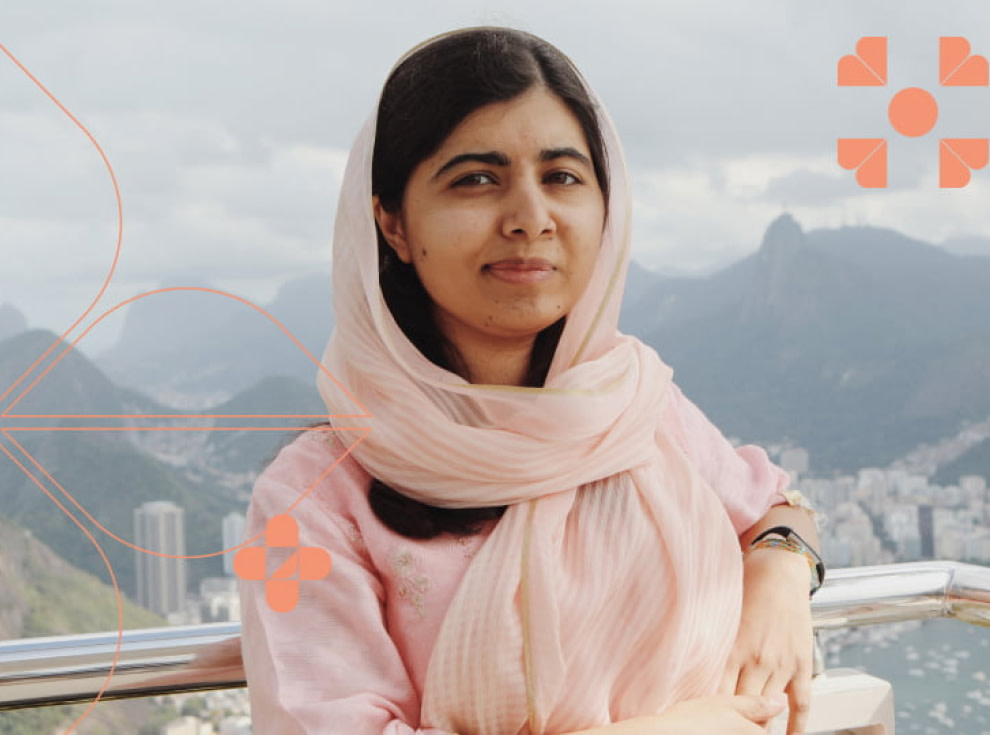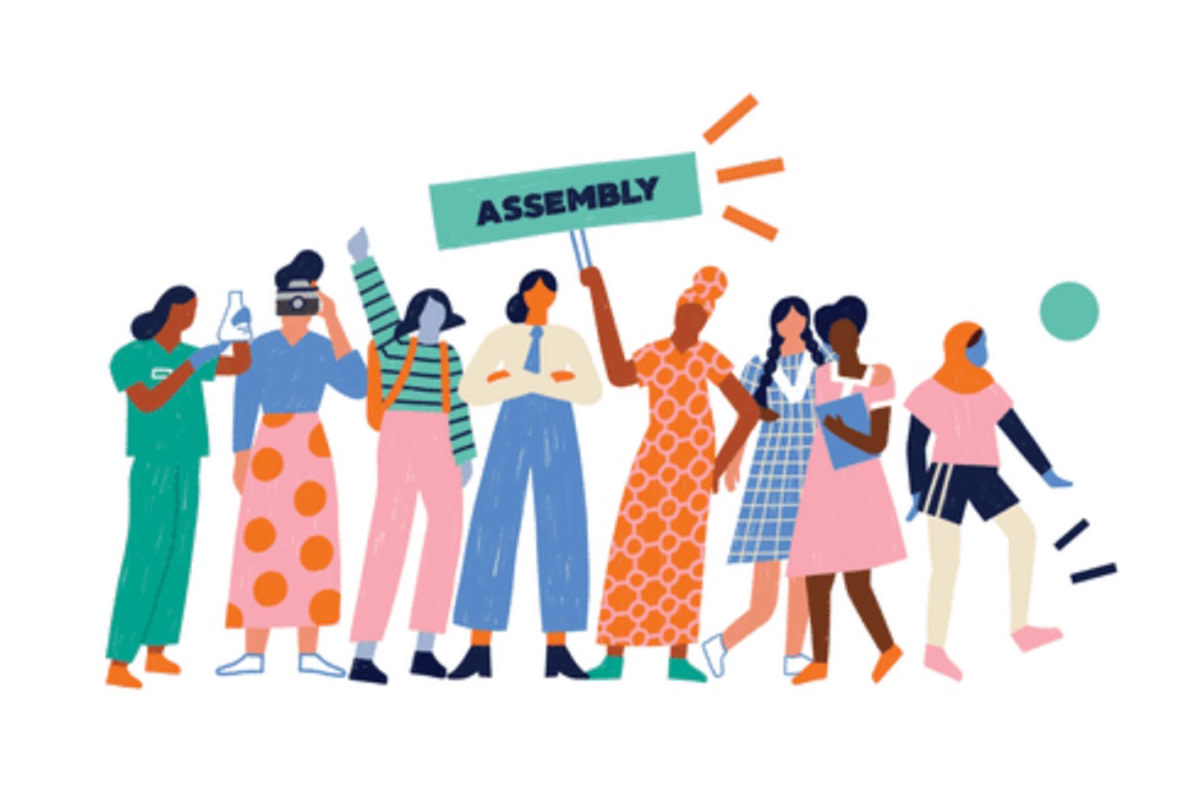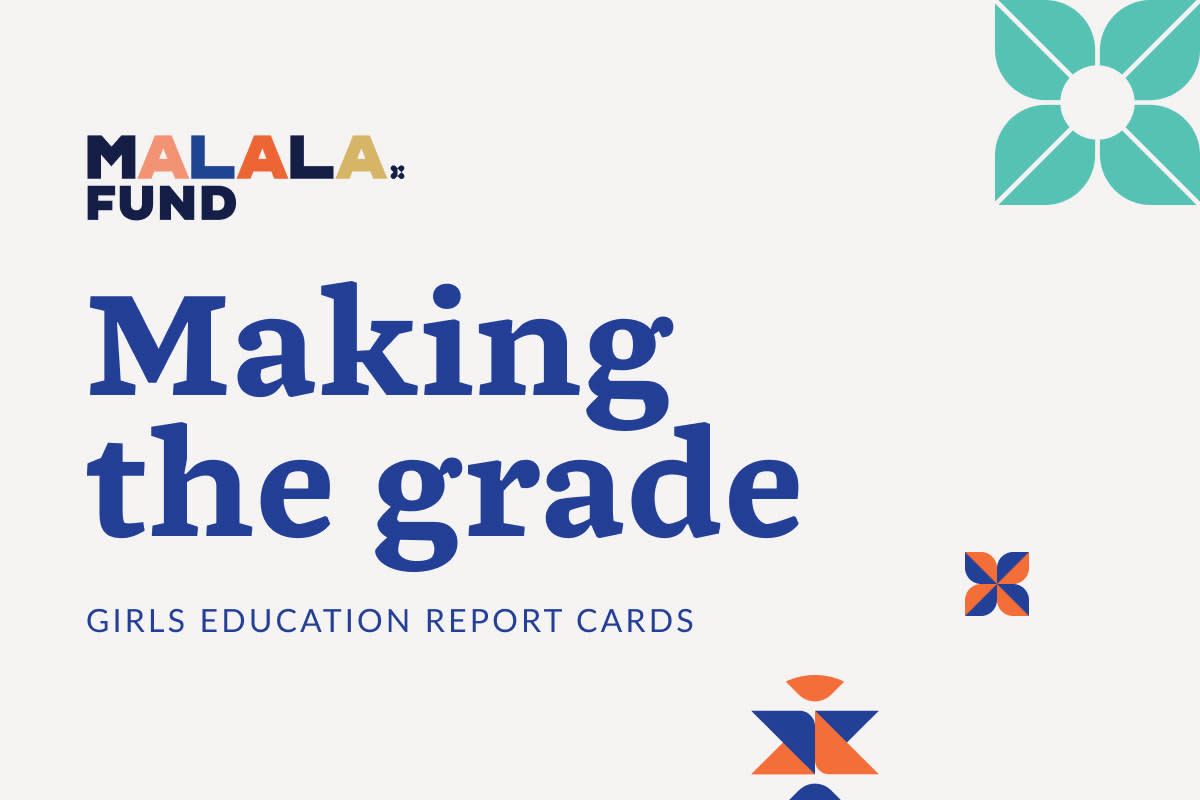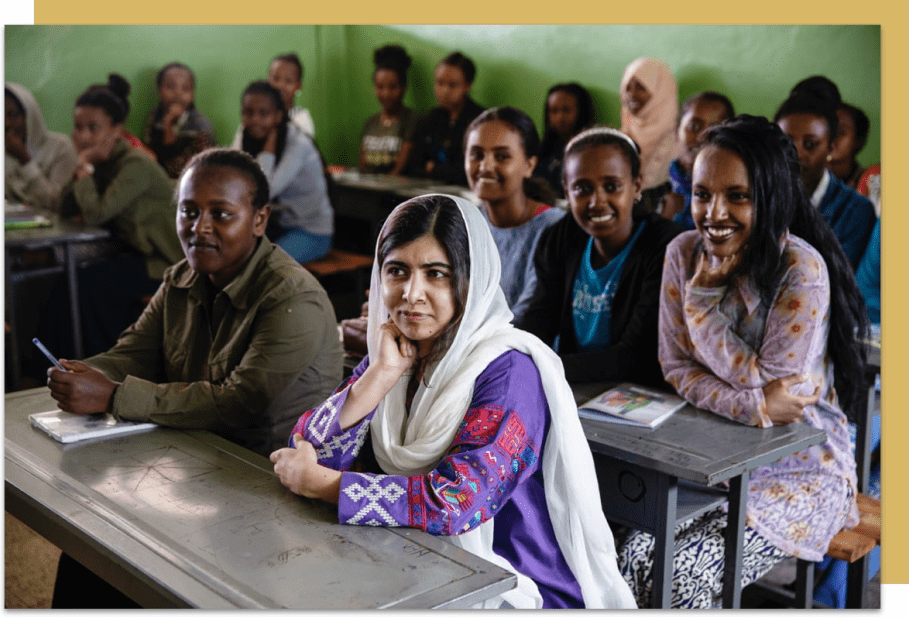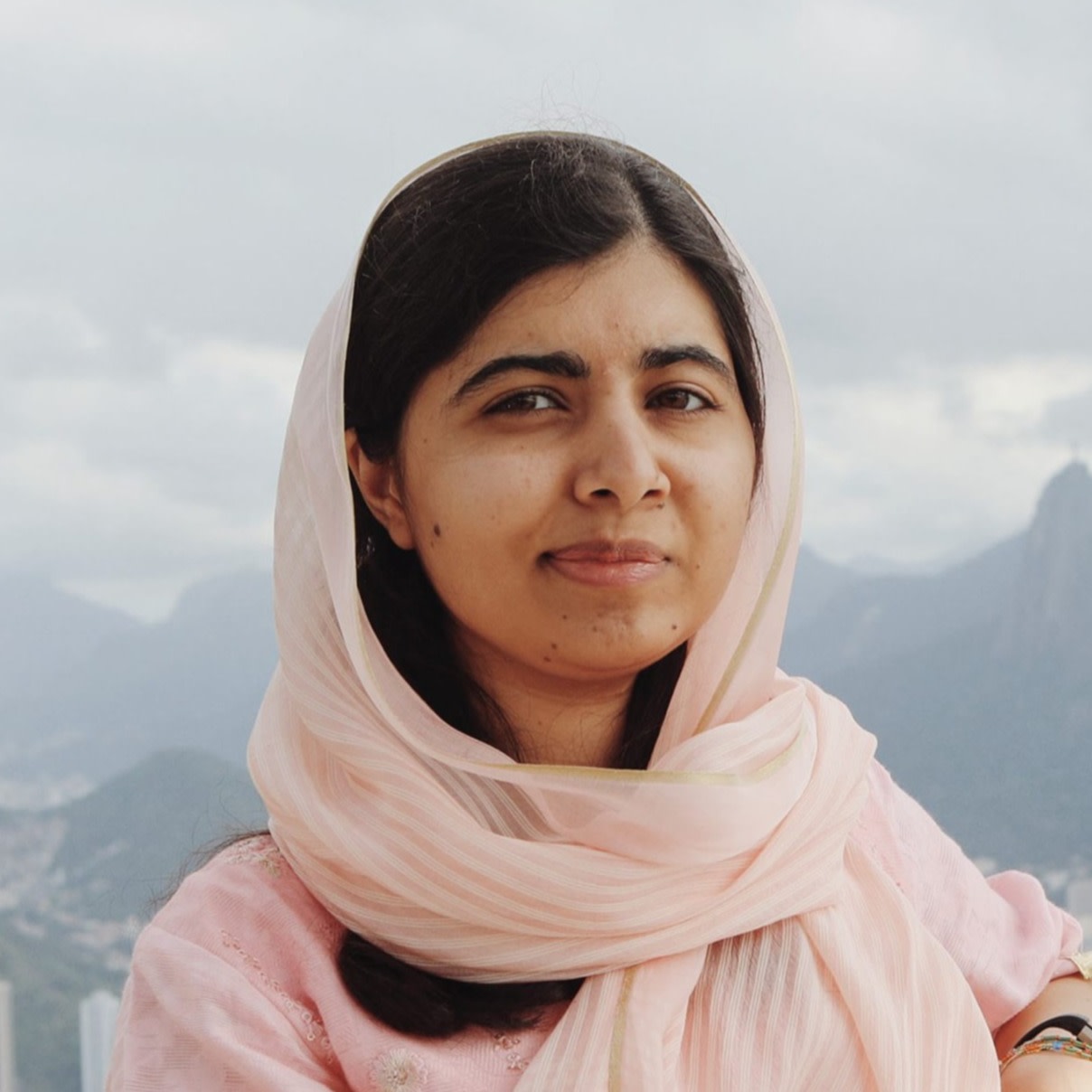"I know that we have different ways to worship, but we share the same hope for peace, the same love for our sisters and brothers."
Atlanta, Georgia
Bismillah hir rahman ir rahim. In the name of God, the most merciful, the most beneficent.
Good morning and thank you Reverend Warnock and all of you for inviting me to join you. This is my first time speaking in a church. I am humbled by the welcome you’ve given me today.
Since the 1800s, this church has inspired the world with your service and your fight for justice. I have heard about your congregation from my friend Eason Jordan, whose mother sang in your choir for years. I am honoured to be here with you.
I grew up in a small town in Pakistan, a Muslim nation. As a child, I didn’t know what a Christian life would be like. Or what a Jewish life would be like.
In the last few years, I have met many people of different faiths, from different countries. I have seen the world beyond the mountains of my home in Swat Valley. I know now that the world is big, beautiful and diverse.
I know that we have different ways to worship, but we share the same hope for peace, the same love for our sisters and brothers.
It was my faith that helped me stand up to extremists and forgive the man who shot me. And it was your faith that led a son of this great church to fight for equality in his own country.
As a child, I learned in my school books how Dr. Martin Luther King reminded the world of basic values we should all share:
to respect the humanity of every man, woman and child,
to love even our enemies,
and to work for peace at home and around the world.
This morning I visited the old church and the King Center and understand more clearly some of the history I read about in my books.
Fifty years to the day after Dr. King received the Nobel Peace Prize, I received the same award; I hoped to honour his legacy that day and every day.
Dr. King raised his voice to change the world — and he did. With my voice, I hope to do the same for 130 million girls who are out of school today.
Just like you and me, they have dreams for their future. Without education, they will not fulfil their potential and their gifts to the world will be lost. We cannot afford to lose these girls. In different countries and communities, girls are out of school for different reasons. For some, restrictive gender roles mean girls marry as young as 13 years old. Instead of going to school, they are cooking, they are cleaning and they are raising children of their own.
In other places, poverty forces girls to go to work and support their families. Too often, in wars and violent conflicts, girls must flee their homes and their schools. Too often, they never go back to the classroom.
Some girls do not have access to working restrooms at school — and they must choose between their dignity or education. Some girls have no schools at all.
This may seem like a far away problem that affects other families in other countries. But, even in America, hundreds of thousands of girls are not in school.
Like many of their sisters around the world, the poorest girls in the United States suffer the most. They leave school because of poverty, pregnancy — or simply because they do not feel safe or welcome. And I am speaking out every day for them. I raise my voice so that we will not lose another generation of girls.
If you believe that every girl deserves to go to school,
If you believe that education gives girls a chance to build a better life
If you believe that 12 years of quality education is the right of every girl, no matter her race or religion, I ask you to join me and stand up for girls — at home and around the world.
Men and women like Dr. King, John Lewis, Rosa Parks, Abdul Sattar Edhi, Mother Theresa, Bacha Khan, Anne Frank and Gandhi — and many before them — paved a road to justice and humanity for every one of us.
Dear sisters and brothers, we are still walking down their road today.
When girls cannot go to school, the road gets longer.
When families flee war and terror in Myanmar, Syria and Colombia and we turn our backs on them, the road gets longer.
When my father, who risked his life to stand up to extremists, is detained at airports and assumed to be one of them, the road gets longer.
When police kill a child playing with a toy or a man out for a drive with his family, the road gets longer.
When people march in the streets and proudly bear the flags of humanity’s most shameful days, the road gets longer.
When the leader of this country refuses to stand against hate, the road gets longer.
Like the prophet Jeremiah, some days I am weary. I know you are, too. I know that I may walk this road for the rest of my life and never reach the end. But I will walk with you. And I hope you will walk with me. We will walk this road together.
Toward the end of his journey, Dr. King asked, “Where do we go from here?” His answer — and mine — is we go forward. Go forward for justice. Go forward with hope. Go forward in peace.
God is good
*Congregation: all the time.*
And all the time
*Congregation: God is good.*
Thank you.
